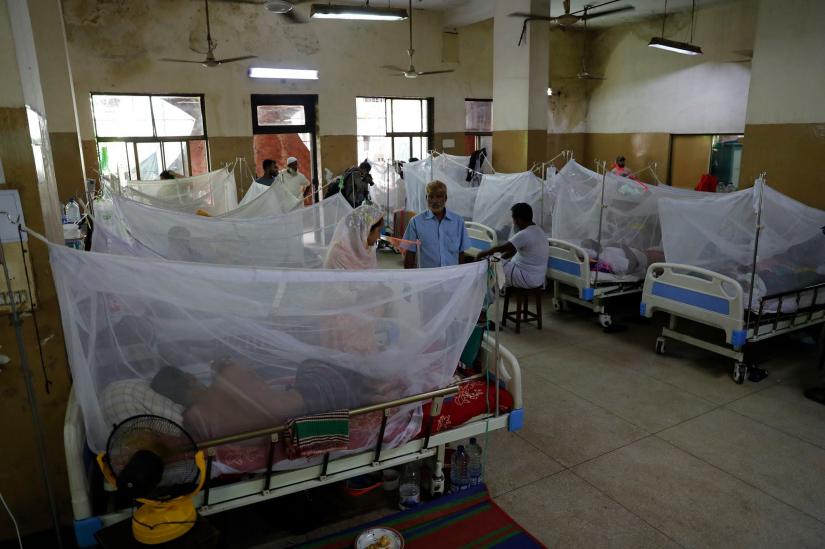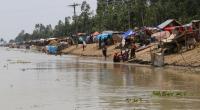 The incident of dengue growing dramatically in recent months and the entire Dhaka city’s population is now at risk, says the government’s Directorate General of Health Services (DHGS).
The incident of dengue growing dramatically in recent months and the entire Dhaka city’s population is now at risk, says the government’s Directorate General of Health Services (DHGS).
The mosquito-borne disease has hit an all-time high in Bangladesh with over 10,500 people infected in the seven months since January this year.
According to figures by the DGHS, it’s the record number of patients being infected in the last 18 years.
Speaking to media on Sunday (Jul 28) following a meeting with representatives of private hospitals and clinics, DGHS Director General Abul Kalam Azad said that they have already completed collecting data for a survey to identify risky-zones.
“Details will be provided later. But the entire Dhaka city is now at risk,” he said.
It was decided at the meeting that hospitals will charge a maximum of Tk 500 for dengue tests.
Government hospitals do the NS1 antigen test for free to determine dengue and now the private hospitals will have to keep the charges by the fixed-rate fiat.
“All hospitals will charge the same rates for the three tests to determine dengue. This will be implemented from today [Sunday],” DGHS chief Azad said.
It was also decided that hospitals will set up a help desk for dengue enquiries as well as teams will be formed to monitor the hospitals and report to the DGHS.
“The government will not compromise on ensuring quality healthcare services for patients,” said Azad. Dengue first struck Bangladesh in 2000, killing 93 people. Since 2003, the death rate has gradually declined with zero fatalities in some years.
Dengue first struck Bangladesh in 2000, killing 93 people. Since 2003, the death rate has gradually declined with zero fatalities in some years.
According to figures by the DGHS, the number of dengue cases has increased by around nine times in the last 10 years.
In 2008, there were only 1,153 identified dengue patients in the country with no casualty reported.
Doctors at hospitals in Dhaka are struggling to handle the rising number of dengue patients and huge numbers of people with fever rushing to hospitals for dengue test.
State-run hospitals, including the Dhaka Medical College Hospital, are keeping patients on the floors and corridors with the beds fully booked.
 National
National
40172 hour(s) 19 minute(s) ago ;
Afternoon 03:13 ; Saturday ; May 17, 2025
Entire Dhaka city now at dengue risk: DGHS
Send
Bangla Tribune Report
Published : 18:07, Jul 28, 2019 | Updated : 18:11, Jul 28, 2019
Published : 18:07, Jul 28, 2019 | Updated : 18:11, Jul 28, 2019
0 ...0 ...
/ja/zmi/
Topics: Top Stories
- KOICA donates medical supplies to BSMMU
- 5 more flights to take back British nationals to London
- Covid19: Rajarbagh, Mohammadpur worst affected
- Momen joins UN solidarity song over COVID-19 combat
- Covid-19: OIC to hold special meeting
- WFP begins food distribution in Cox’s Bazar
- WFP begins food distribution in Cox’s Bazar
- 290 return home to Australia
- Third charter flight for US citizens to return home
- Dhaka proposes to postpone D8 Summit
Unauthorized use of news, image, information, etc published by Bangla Tribune is punishable by copyright law. Appropriate legal steps will be taken by the management against any person or body that infringes those laws.
Bangla Tribune is one of the most revered online newspapers in Bangladesh, due to its reputation of neutral coverage and incisive analysis.
F R Tower, 8/C Panthapath, Shukrabad, Dhaka-1207 | Phone: 58151324; 58151326, Fax: 58151329 | Mob: 01730794527, 01730794528


